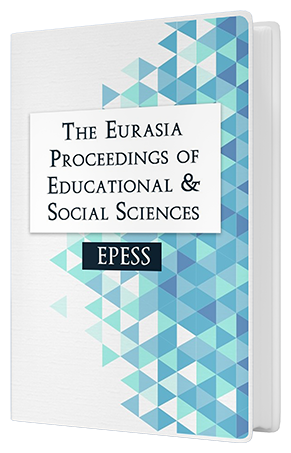Using Learner Feedback to Improve Teacher Practices in Materials Adaptation
DOI:
https://doi.org/10.55549/epess.1191899Keywords:
Inputs-processes-outcomes model, Materials adaptation, Retrospective evaluationAbstract
Commercial textbooks are doomed to disappoint user expectations to various extents because irrespective of origin (global/local), they are designed with an idealised classroom in mind, and their prescribed configuration probably won’t be compatible with the ever-diversifying contexts of L2 teaching and learning. Even in the case of a longtime bestseller, EFL teachers may need to customise the student-purchased materials often based on their perceived learning needs, and learner feedback is not as a rule sought on the mostly teacher-led modifications to the textbook content and procedures. Therefore, this study aimed to demonstrate how Maley’s (2011) inputs-processes-outcomes model could be used to evaluate and adapt an intermediate unit on modals of deduction, and examine how a multicultural group of 14 prep students from a major metropolitan state-run university in Turkey reacted to the teacher’s adaptive practices. Descriptive analyses of students’ activity ratings and retrospective reflections demonstrated that the addition of two scaffolded grammar tasks proved better for generating student interest and facilitating learning than replacement of another guessing game with the relatively more open and difficult task on video-based end-of-unit writing activity. Despite being independent users (B1), the participants indicated greater liking for the use of visual aids, ample practice opportunities, collaborative group work, explicit focus on grammar, and learner translations respectively. While their fewer dislikes mainly concerned video quality, activity difficulty and duration, there was almost unanimous agreement that they finally achieved to develop an increased awareness of how to use modality in English. A quick comparison of the 20-item quiz results also showed a considerable increase in their learning gains, for the mean number of correct answers more than doubled from pre- to post-test.Downloads
Published
Issue
Section
License
Copyright (c) 2022 The Eurasia Proceedings of Educational and Social Sciences

This work is licensed under a Creative Commons Attribution-NonCommercial-ShareAlike 4.0 International License.
The articles may be used for research, teaching, and private study purposes. Any substantial or systematic reproduction, redistribution, reselling, loan, sub-licensing, systematic supply, or distribution in any form to anyone is expressly forbidden. Authors alone are responsible for the contents of their articles. The journal owns the copyright of the articles. The publisher shall not be liable for any loss, actions, claims, proceedings, demand, or costs or damages whatsoever or howsoever caused arising directly or indirectly in connection with or arising out of the use of the research material. All authors are requested to disclose any actual or potential conflict of interest including any financial, personal or other relationships with other people or organizations regarding the submitted work.




